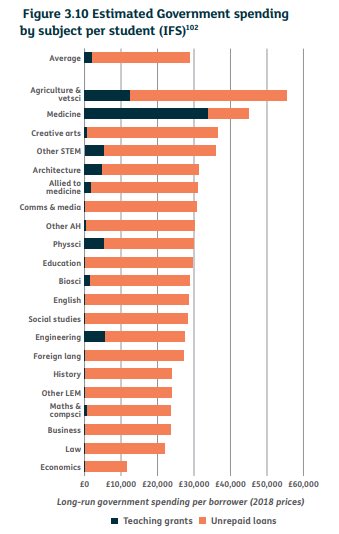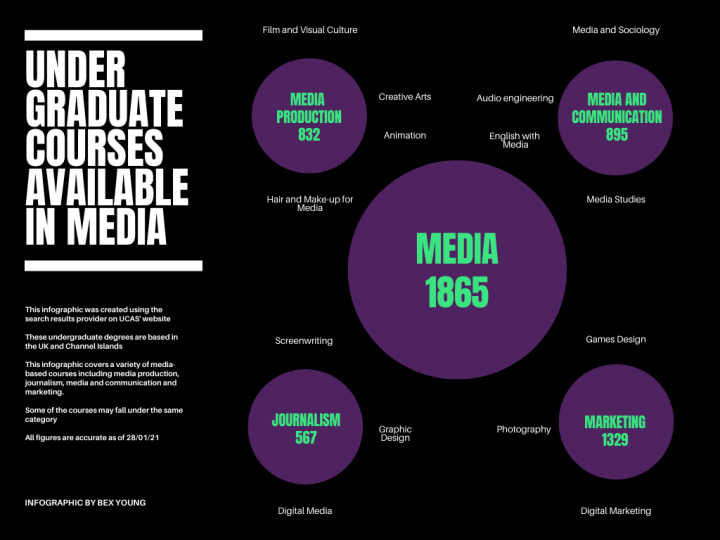In a recent response to the interim review for higher education, Education Secretary Gavin Williamson told the House of Commons that a number of degree subjects will have their funding cut by 50%.
These include media studies, performing arts, music and archaeology.
The ‘non-strategic’ subjects are classed as “high-cost” degrees, which means they receive extra funding from the government that is distributed between different universities.
Officials from the Department for Education said they want “more of taxpayers’ money to be spent on provisions which support the priorities of the nation”, such as STEM subjects.

Mark Dixon, Head of Department in Film and Media at Durham Sixth Form Centre and Senior Examiner in Media Studies said he is always concerned when the subject is identified for criticism: “Studying Media is hard work – it requires higher-order analytical skills and an ability to understand the often complex and contradictory effects that are produced as a result of media consumption.
“Media students are perceptive and critically engaged thinkers. They are adaptable and creative managers who thrive within the business sector.
“You will find at the heart of any successful business adaptable media graduates who are shaping their communications strategies and helping them find commercial success in today’s challenging economic environment.”
Dixon also understands the importance of STEM subjects but explained that the UK media industry is just as important: “PwC, for example, predict that the entertainment and media sector will generate nearly £80 billion in yearly revenue by 2024, some £10 billion more than where we stand today.
“We need good quality graduates to help sustain that growth and to make sure that the UK maintains its position as a global leader in the media sector. A reduction in funding is likely to cause some harm in that the industry will have a reduced pool of specialist graduate talent to draw from.”
Jen Charlton, final year Media Production student at York St John University, said that the funding cuts will have differing effects on different universities: “Not all universities have the equipment that mine has. I have access to anything from a zoom mic (a handheld microphone for out of studio radio packages) to the studio cameras used for presenting on our newsdays.
“My university is rather small, but we are still cared for and provided with equipment like larger universities. I think the 50% cut will really affect media-based courses, and will not enable students to gain as much preparation for ‘the real world’ as they should have.”
It is this preparation that Charlton thinks will have the most impact if it is taken away: “We are expected to go elsewhere and gain work experience. How can we expect students that will suffer the 50% cut to be thrown into a radio station, but have never used one before? Even if the one on campus is your standard basics, at least we have an idea of what to expect on work experience.
“Yes it is important that STEM subjects get useful funding, but we media students are just as entitled.”

Freelance journalist and podcaster Andrea Arhagba doesn’t agree with media-based subjects being labelled as ‘non-strategic’: “Everything about the media industries is strategic. Conceptualisation, editorial, production, post-production, distribution, commerce extensions and distribution.
“The Department for Digital, Culture, Media and Sport state that they not only “drive growth, enrich lives” but also “protect and promote [Britain’s] cultural and artistic heritage and help businesses and communities to grow by investing in innovation”. I would like to know how allowing the Education Secretary to defund media studies and other art-based subjects still makes this true.”
Arhagba was previously a STEM student, and with this knowledge, she doesn’t understand why the UK can’t take a similar approach to education like America and Australia: “They need to realise that there is a timely need for science, technology, engineering and maths to integrate with the arts – STEAM.
“The 21st century has shown the world the complex possibilities that can result from honing problem solving whilst investing in creativity. Future workforces whether they are in a laboratory, car industrial plant or broadcasting studio will need to approach challenges with wonder, innovation and inquiry.
“We do not know what jobs will look like in the future but with the constant development of new media and design, it is evident that one will have to require intellect and be artistic.”



 It Takes A Village: Community comes together to help school children in the pandemic
It Takes A Village: Community comes together to help school children in the pandemic